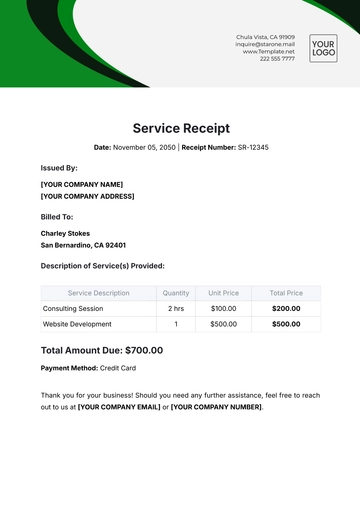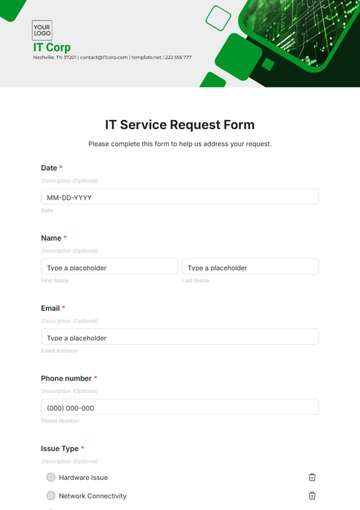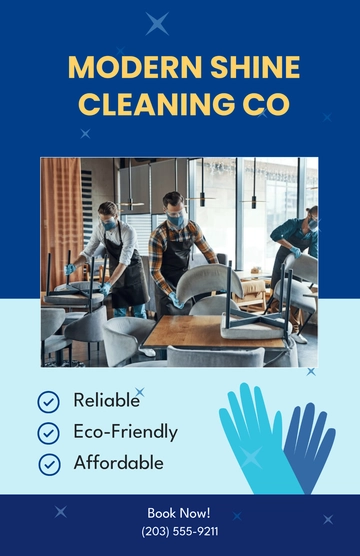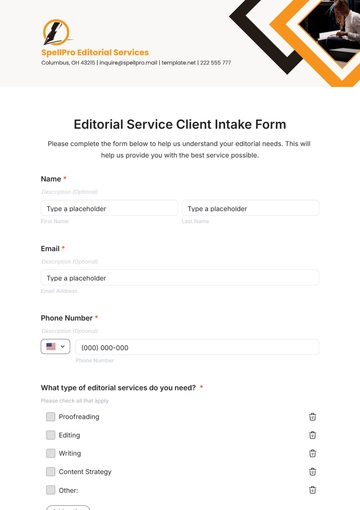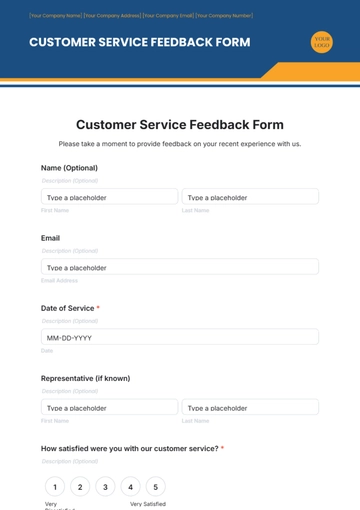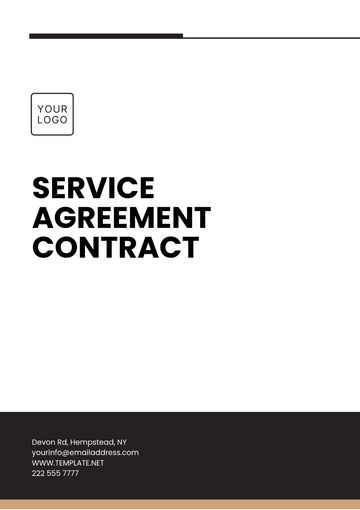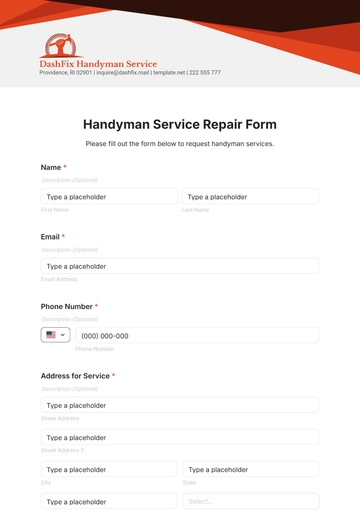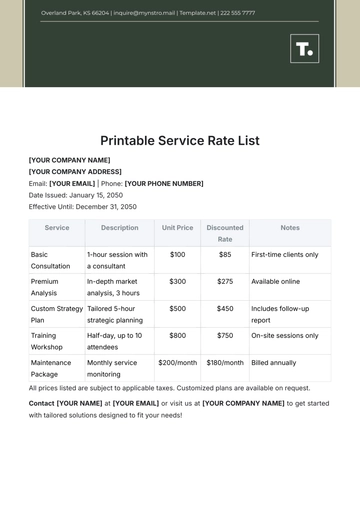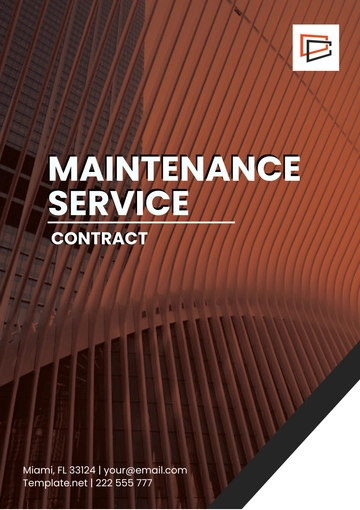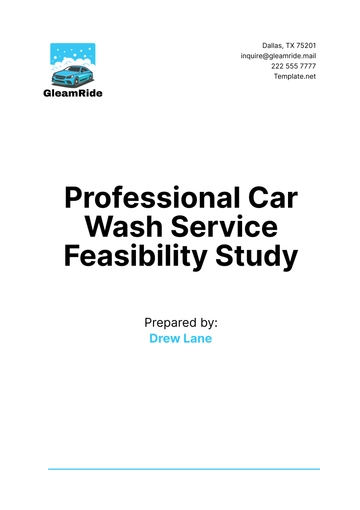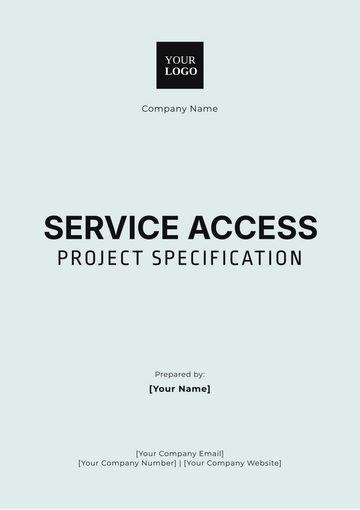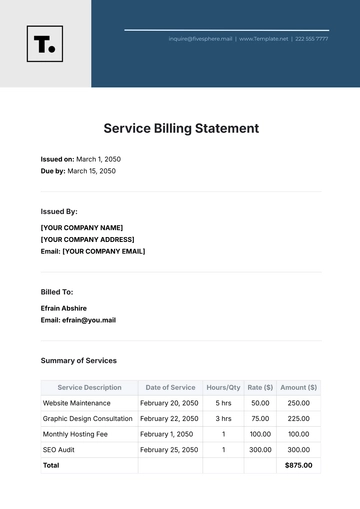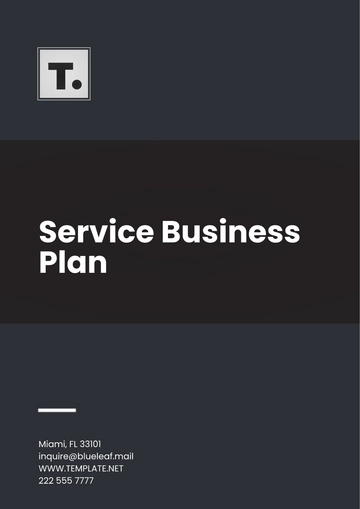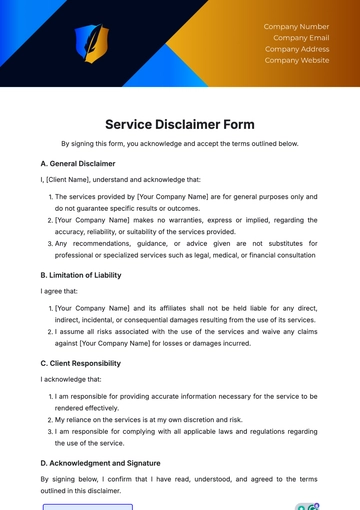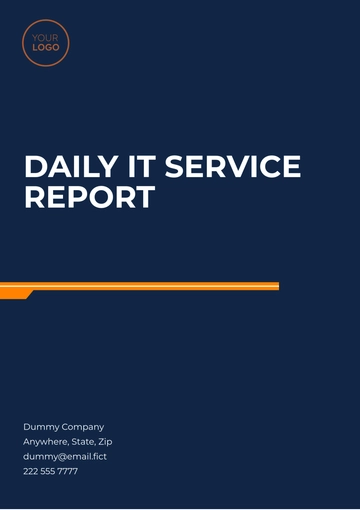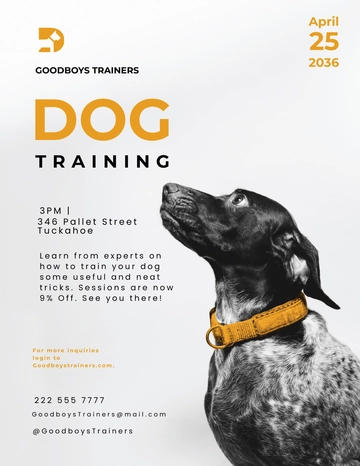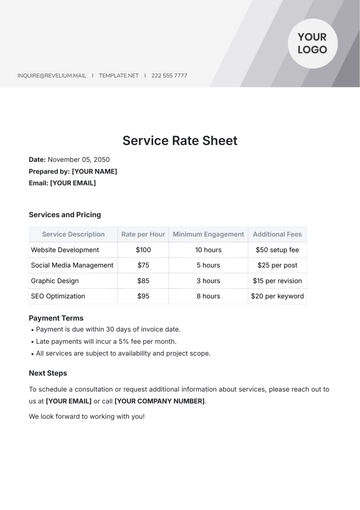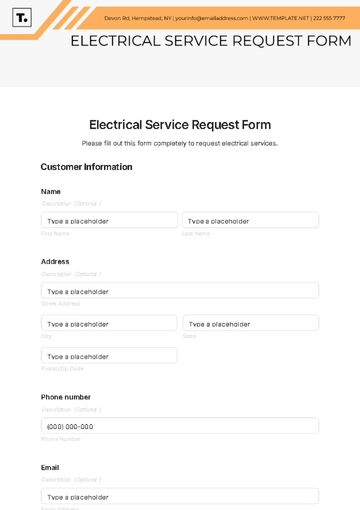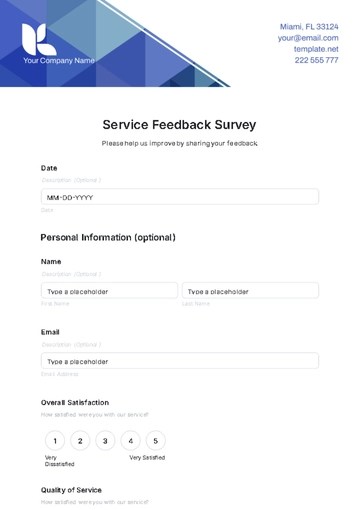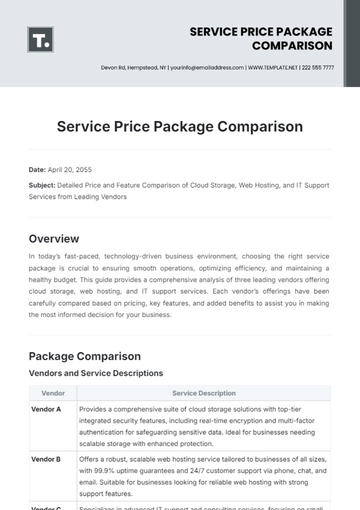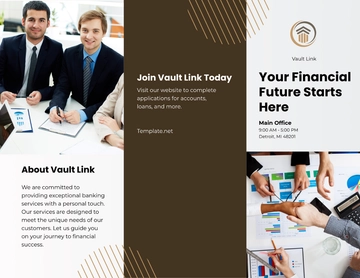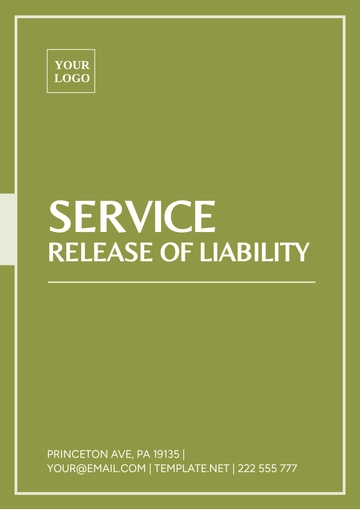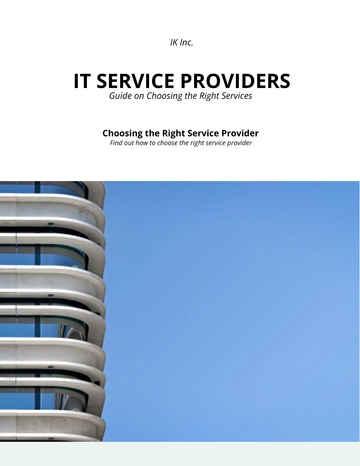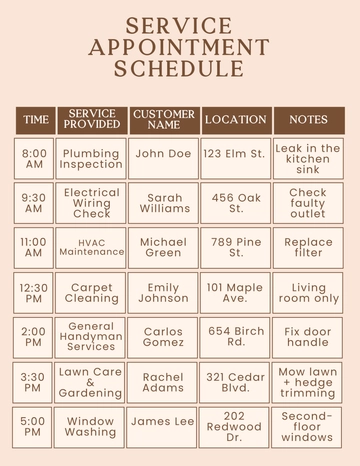Free Professional Car Wash Service Feasibility Study
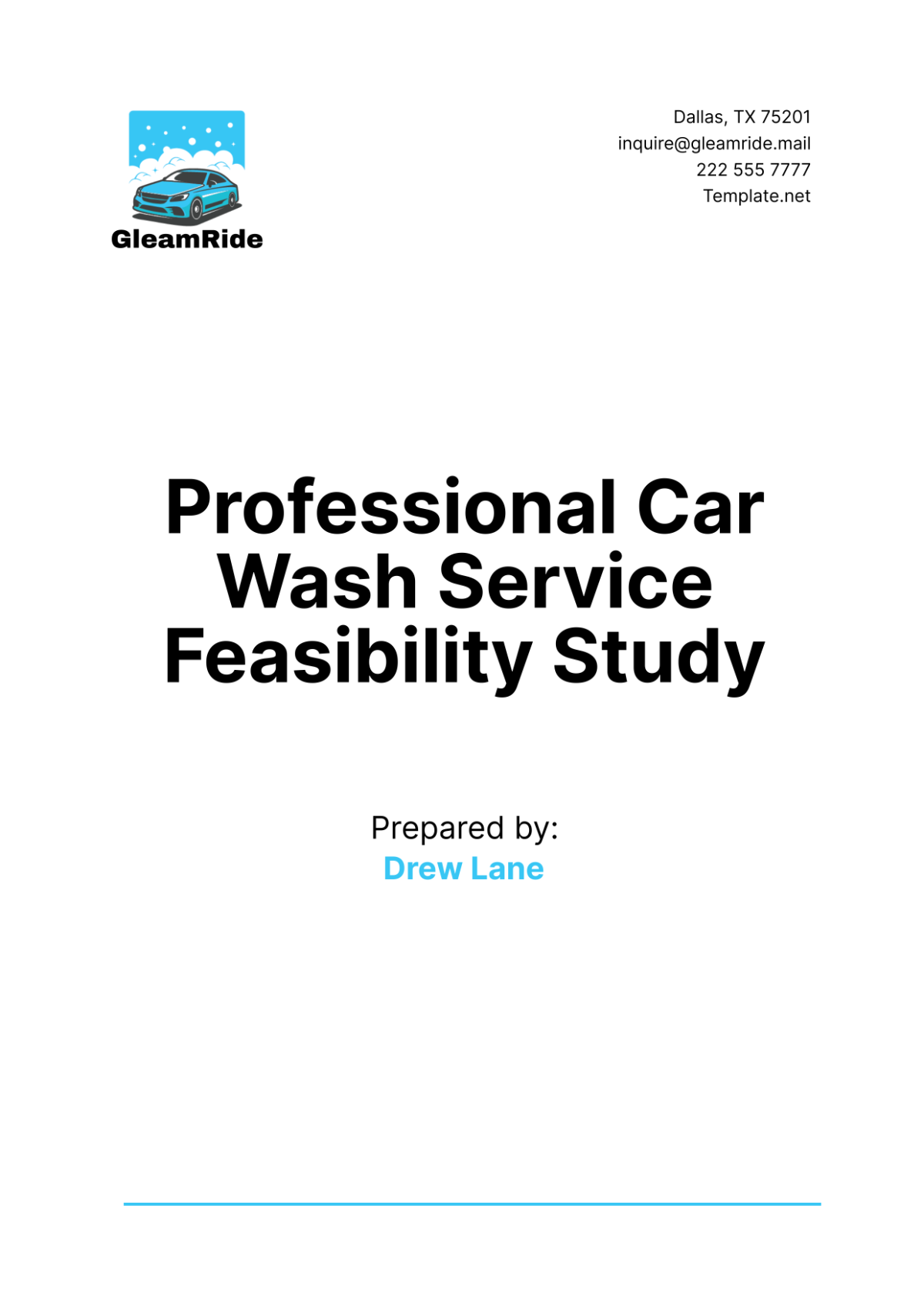
I. Executive Summary
A. Overview
[Your Company Name] seeks to establish a state-of-the-art professional car wash service in [City, State], addressing the growing demand for convenient and eco-friendly vehicle cleaning solutions. This comprehensive feasibility study explores market potential, operational feasibility, financial viability, and strategic recommendations necessary for successful implementation.
The modern consumer values time efficiency and environmental responsibility, driving the demand for professional car wash services that offer both quality and convenience. [Your Company Name] aims to fill this gap in the market by leveraging advanced technology and sustainable practices to deliver superior cleaning results while minimizing environmental impact.
B. Key Findings
Market Demand: Extensive market research reveals a robust demand for professional car wash services among urban and suburban demographics. Increasing vehicle ownership and the preference for time-saving services contribute significantly to this demand. Consumers are increasingly opting for professional cleaning services over traditional methods due to the superior quality and convenience they offer.
Operational Feasibility: Through meticulous analysis, it is evident that integrating advanced technology such as automated car wash systems and eco-friendly practices is not only feasible but essential for meeting customer expectations and achieving operational efficiency. The strategic deployment of these technologies will enable [Your Company Name] to streamline operations, reduce labor costs, and enhance service quality.
Financial Viability: Financial projections highlight promising returns on investment (ROI) within 5 years, based on conservative revenue estimates and prudent cost management practices. Initial capital expenditures will be offset by steady revenue growth driven by a comprehensive service offering and effective marketing strategies.
C. Recommendations
Based on the findings, [Your Company Name] is well-positioned to proceed with establishing the professional car wash service in [City, State]. Emphasizing superior service quality, leveraging technology for operational efficiency, and implementing robust customer retention strategies will be crucial to gaining a competitive edge in the market. Continuous monitoring of market trends and consumer preferences will guide ongoing improvements and ensure sustained business growth.
II. Introduction
A. Purpose of the Study
This feasibility study aims to evaluate the feasibility of launching a professional car wash service that meets the increasing demand for convenient and environmentally sustainable vehicle cleaning solutions in [City, State]. It seeks to assess the viability of introducing a modern car wash facility equipped with state-of-the-art technology and eco-friendly practices, catering to the evolving needs of urban and suburban consumers.
B. Scope
The scope of this study includes:
Detailed market analysis to identify target demographics, competitive dynamics, and consumer behavior trends.
Evaluation of operational requirements such as facility location, equipment needs, staffing, and training.
Financial projections and investment analysis to determine profitability, break-even points, and ROI.
Comprehensive risk assessment and mitigation strategies to address potential challenges and ensure operational continuity and regulatory compliance.
III. Market Analysis
A. Market Overview
The car wash industry in [City, State] is experiencing rapid growth, driven by an increasing number of vehicles on the road and heightened consumer awareness regarding vehicle maintenance and aesthetics. Urbanization and changing lifestyles have contributed to the rise in demand for professional car cleaning services, as consumers seek efficient and reliable solutions for maintaining their vehicles.
B. Target Market
Demographic Profile: The primary target demographic comprises urban and suburban residents aged 25-55 with disposable income and a preference for convenience. These consumers prioritize the appearance and longevity of their vehicles through regular professional cleaning services. They are willing to pay a premium for services that offer convenience, quality, and environmental sustainability.
Consumer Behavior: There is a discernible shift towards outsourcing vehicle cleaning tasks to professional services that offer consistent quality and advanced cleaning technologies. Consumers value time efficiency and the assurance of professional expertise in preserving their vehicle's aesthetic appeal and resale value.
C. Competitor Analysis
Direct Competitors: Established car wash facilities and chains such as [Competitor 1], [Competitor 2], and [Competitor 3] represent direct competition with varying service offerings and pricing strategies. Each competitor has carved out a niche in the market by targeting specific customer segments based on service quality, convenience, and affordability.
Indirect Competitors: DIY car wash stations and mobile detailing services provide alternatives to traditional car washes, appealing to cost-conscious consumers seeking convenience and affordability. These indirect competitors pose a challenge by offering competitive pricing and flexible service options that cater to diverse consumer preferences.
D. Market Trends
Technology Adoption: The industry is embracing technological advancements, with automated car wash systems and digital payment solutions becoming standard. Integration with mobile app platforms for scheduling appointments and managing customer accounts enhances convenience and operational efficiency, attracting tech-savvy consumers.
Environmental Awareness: Increasing environmental consciousness among consumers has led to a growing preference for eco-friendly car wash solutions. [Your Company Name] can capitalize on this trend by adopting sustainable practices such as water recycling systems and biodegradable cleaning products, positioning itself as an environmentally responsible choice.
E. Regulatory Environment
Compliance with local regulations governing water usage, wastewater disposal, and environmental impact assessments is crucial for [Your Company Name]. Adhering to these regulations not only ensures operational legality but also enhances brand reputation as a responsible corporate entity. Collaborating with regulatory bodies and obtaining necessary permits demonstrates commitment to environmental stewardship and community welfare.
IV. Operational Plan
A. Location and Facility
Site Selection: [Your Company Name] will strategically locate its car wash facility in [City, State] to maximize visibility and accessibility. Factors such as proximity to residential areas, commercial districts, and major thoroughfares will be considered to attract a diverse customer base.
Facility Requirements: The facility will feature advanced car wash equipment capable of efficiently cleaning multiple vehicles simultaneously. Eco-friendly water recycling systems will minimize environmental impact, aligning with [Your Company Name]'s commitment to sustainability.
B. Service Offerings
Core Services: [Your Company Name] will offer a range of comprehensive exterior and interior car wash services designed to meet varying customer preferences and vehicle types. Services will include basic wash packages, waxing, and polishing treatments to enhance vehicle aesthetics and protect paintwork.
Additional Services: Upselling opportunities will include premium services such as upholstery cleaning, scratch removal, and ceramic coating treatments. These services cater to customers seeking enhanced vehicle maintenance and protection solutions.
C. Technology and Equipment
Automated Systems: Investment in state-of-the-art car wash systems featuring high-pressure washers and touchless cleaning technology will ensure thorough cleaning results while minimizing the risk of damage to vehicle surfaces.
Software Solutions: Implementation of a robust POS system and user-friendly mobile app will facilitate seamless customer transactions, appointment scheduling, and loyalty program management. These technological enhancements will enhance customer convenience and streamline operational workflows.
D. Staffing and Training
Staff Requirements: [Your Company Name] will recruit skilled technicians and customer service personnel trained to deliver exceptional service quality and uphold [Your Company Name]'s brand reputation. Continuous training programs will focus on operational procedures, safety protocols, and customer interaction skills.
Training Programs: Ongoing training initiatives will ensure that staff members remain proficient in the use of car wash equipment, product knowledge, and customer service best practices. By investing in employee development, [Your Company Name] will maintain service excellence and foster a positive work environment conducive to employee satisfaction and retention.
V. Financial Analysis
A. Startup Costs
Capital Expenditure: Initial investment will encompass land acquisition, facility construction, purchase of car wash equipment, and installation of necessary infrastructure. Detailed cost estimates will be prepared to allocate funds efficiently and minimize budget overruns.
Initial Working Capital: Funds will be allocated for pre-launch marketing campaigns, operational expenses during the initial phase, and contingency reserves to cover unforeseen costs or delays.
B. Revenue Projections
Sales Forecast: Revenue projections will be based on estimated customer traffic, average spending per visit, and seasonal variations in demand. The following table outlines projected revenues for the first year of operation:
Month
Number of Customers
Average Revenue per Customer ($)
Total Revenue ($)
January
1,500
25
37,500
February
1,800
25
45,000
March
2,000
28
56,000
April
2,200
28
61,600
May
2,500
30
75,000
June
2,800
30
84,000
July
3,000
32
96,000
August
2,800
32
89,600
September
2,500
30
75,000
October
2,200
30
66,000
November
1,800
28
50,400
December
2,000
28
56,000
These projections account for seasonal fluctuations in customer demand and promotional activities aimed at attracting and retaining customers.
Profitability: Break-even analysis will determine the point at which [Your Company Name] is expected to cover its operating costs and achieve profitability. Conservative financial modeling will be employed to assess various scenarios and ensure financial stability during the initial phases of business operations.
C. Financial Risks
Market Risk: Economic downturns or shifts in consumer spending habits may impact revenue forecasts and profitability. To mitigate these risks, [Your Company Name] will implement flexible pricing strategies and monitor market trends closely.
Operational Risk: Potential challenges such as equipment malfunctions, supply chain disruptions, and regulatory changes could affect operational efficiency and financial performance. Contingency plans and preventive maintenance schedules will be established to minimize disruptions and maintain service continuity.
VI. Marketing Strategy
A. Brand Positioning
[Your Company Name] will position itself as the premier provider of professional car wash services in [City, State], emphasizing quality, convenience, and environmental sustainability. The brand will convey a commitment to customer satisfaction and operational excellence, distinguishing itself from competitors through superior service delivery and innovative solutions.
B. Promotion and Advertising
Targeted Campaigns: Launch of targeted marketing campaigns across digital platforms, local media outlets, and community events to raise brand awareness and attract initial customers.
Partnerships: Collaborations with local businesses, corporate fleets, and residential complexes to offer exclusive discounts and promotional packages, fostering customer loyalty and maximizing market penetration.
C. Customer Engagement
Implementation of a customer relationship management (CRM) system to track customer preferences, manage feedback, and personalize service offerings. Loyalty programs and referral incentives will incentivize repeat business and word-of-mouth referrals, enhancing customer retention and brand advocacy.
VII. Risk Management
A. Risk Assessment
Financial Risks: Mitigation strategies will include maintaining adequate cash reserves, diversifying revenue streams through additional service offerings, and conducting regular financial reviews to monitor performance against projections.
Operational Risks: Comprehensive insurance coverage, regular equipment maintenance, and stringent safety protocols will mitigate operational risks. Staff training programs will focus on emergency response procedures and contingency planning to ensure swift resolution of operational challenges.
B. Regulatory Compliance
Adherence to local regulations governing environmental impact, water usage, and wastewater disposal will be prioritized. [Your Company Name] will collaborate with regulatory bodies to obtain necessary permits and certifications, demonstrating commitment to environmental stewardship and operational compliance.
VIII. Conclusion
A. Summary of Findings
Based on the comprehensive analysis presented in this feasibility study, [Your Company Name] is well-positioned to capitalize on the growing demand for professional car wash services in [City, State]. The strategic focus on customer-centric services, technological innovation, and environmental sustainability establishes a strong foundation for sustainable growth and competitive advantage.
B. Next Steps
Implementation Plan: Finalize site selection, secure financing, and commence construction of the car wash facility in accordance with regulatory requirements and operational timelines.
Launch Strategy: Execute the marketing plan to build initial customer base and brand visibility. Monitor operational performance closely and adapt strategies as needed to optimize service delivery and customer satisfaction.
C. Continuous Improvement
Ongoing market research and customer feedback will drive continuous improvement initiatives. [Your Company Name] will remain agile in responding to market trends and consumer preferences, ensuring long-term success and profitability in the professional car wash industry.
- 100% Customizable, free editor
- Access 1 Million+ Templates, photo’s & graphics
- Download or share as a template
- Click and replace photos, graphics, text, backgrounds
- Resize, crop, AI write & more
- Access advanced editor
Explore service viability with the Professional Car Wash Service Feasibility Study Template on Template.net. This editable tool facilitates in-depth analysis. Use our Ai Editor Tool to assess market potential and operational feasibility, guiding strategic decisions for establishing a successful car wash service.

